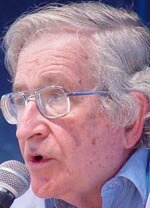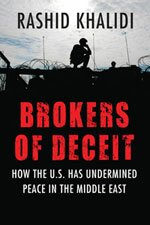Tzipi Livni: “The national solution for Israel’s Arabs lies elsewhere: in order to maintain a Jewish-Democratic state we must constitute two nation-states with clear red-lines. Once this happens, I will be able to come to the Palestinian citizens of Israel, whom we label Israel’s Arabs, and tell them that their national solution is elsewhere.”
Israel
The Occupation is the embodiment of disaster for Israel. Greater Israel, the enthusiasm to conquer, rule and colonize in the very heart of a dense Palestinian population, that sweeping wave was fostered in the very bosom of Zionism that sees itself as civilized, secular and socialistic. The term “Greater Israel” germinated not in the Likud or in the yeshivas of national-religious Judaism, rather it was coined at Kibbutz Ein-Harod by poets, writers and intellectuals, nearly all of them from the moderate secular stream.
Jonathan Cook tells the story of Nazareth, a Palestinian town that survived the Nakba only to be subjected to massive land confiscations, economic strangulation, and systematic discrimination by all Israeli governments since 1948. An important report covering issues crucial for the understanding of the Israeli-Palestinian conflict: because the Occupation didn’t start in 1967, and because discrimination against Israeli Palestinians, at times violent, continues.
A new bill is being debated in the Israeli Knesset: compulsory civil service for all citizens, including Palestinians and ultra-Orthodox Jews, the two groups that have been exempt. If passed, the bill would force every 18-year-old citizen who is exempted from military service to serve in another public institution for between one and two years… In 2008, about 250,000 Palestinian citizens of Israel signed a petition rejecting compulsory civil service, the largest such petition in history, and a wide coalition of youth groups and civil society organisations have campaigned against the service under the motto: “We won’t serve our oppressor.”
Sami Michael: “Israel is in danger unless its leadership understands it isn’t located in Europe’s tranquil north but in the Middle East’s seething center,” said Michael. “We may lose everything. Israel could be a transient construct, like the First and Second Temples.”
Raja Zatara: “From the perspective of the Arab population, which was part of the Palestinian people, David Ben-Gurion and Menachem Begin are not just prime ministers. The former is identified with the Nakba, from our perspective, and with the repression and land appropriation during military rule, while the latter is identified with the activities of Etzel, with the Lebanon War and the massacre at Sabra and Chatila…”
The National Democratic Party has accused Israel’s security services of repeatedly harassing one of its leaders each time he leaves and enters Israel. The NDP, which represents Israel’s large minority of Arab Palestinian citizens and has three members sitting in the Israeli parliament, has suffered a campaign of persecution from the Israeli security services for many years. The latest incident occurred last month, when Awad Abdel Fattah, the NDP’s secretary-general, returned from a speaking tour in Europe.
In recent weeks, incitement by government officials, rightist settlers, and poor community members against African refugees seeking asylum in Israel escalated into violence. In may Molotov cocktails were thrown into refugee homes, businesses and one kindergarten. The incident did not lead to casualties but inspired a wave of protests leading to a race riot on May 23rd.
Several U.S. tourists report being asked by airport security personnel for access to their personal email accounts; Israel’s Shin Bet security service says it acted within the law.
IOA Editor: Welcome to Israel! But please don’t be of Palestinian or Arab descent, and don’t even think of being an activist…
Israel has always denied Bedouin their rights to the land they owned before 1948, because they had no official documents from the Ottoman and British periods to prove their ownership. In those periods, however, Bedouin acquired lands under their own tribal law, the law then valid in the desert, which accepted such transactions based on oral guaranty and dispensed with written proof.
Israel has been ranked in the top four countries that most negatively influence the word, according to a global public opinion poll conducted by the BBC… Where do the negative evaluations of Israel come from? Some 45 percent of participants said that Israeli government policy causes them to see Israel in a negative light, and 27 percent said their negative evaluation stemmed from the state’s treatment of its own people.
[The newly-created coalition] gives Netanyahu time to entrench moves towards authoritarianism. Netanyahu has been behind a series of measures to weaken the media, human rights groups, and the courts. At the moment his government is defying a series of Supreme Court rulings to dismantle several small Jewish settlements on Palestinian land that are illegal even under Israeli law. An uninterrupted 18 months will allow him to further undermine these rival centres of power. One of the promises he and Mofaz made yesterday was to overhaul the system of government. Netanyahu now has enough MPs to overturn even the most sacrosanct of Israel’s Basic Laws.
The Palestinian issue can only be resolved if Israel and its supporters in Britain abandon the dogmas of supremacy and truly adhere to the universal values of justice and fairness. Britain has a special responsibility in this, because it is uniquely responsible for our suffering: our national tragedy began with the Balfour Declaration.
Simultaneous Arab marginalisation and revitalisation also has manifested itself in initial efforts by its leadership to define the community’s political aspirations. The so-called “Vision Documents” advocate full Jewish-Arab equality, adamantly reject the notion of a Jewish state and call instead for a “binational state” – in essence, challenging Israel’s current self-definition. This, for many Jews, is tantamount to a declaration of war.
Israel sees its Arab citizens as a security threat, and their leaders are increasingly under attack. While cooperation and political participation once seemed feasible, systematic discrimination has led to an untenable situation. Secretary general of The National Democratic Party Assembly (Tajamoa) writes on missed opportunities and grim predictions.
Israeli-Palestinian Supreme Court Justice Salim Joubran refused to sing ‘Hatikva’ at retirement ceremony of Supreme Court President Dorit Beinisch, prompting calls for his removal.
In recent years, the government has adopted the so-called Prawer Plan, reversing several earlier decisions to recognize unrecognized Bedouin villages in the Negev desert. The new plan, explained by Association for Civil Rights in Israel lawyer Rawia Abu Rabia, will relocate 40,000 Bedouins in southern Israel for the establishment of 10 Jewish villages in their place.
For over 50 years, Fouzi El-Asmar has been one of the most important public intellectuals of the Palestinian liberation struggle. He is most well-known as the author of the landmark autobiographical work, To Be an Arab in Israel (1975), published in seven languages including Arabic and Hebrew, and as a prolific journalist specializing in the Palestinian-Israeli conflict with particular focus on matters of concern to Palestinian citizens of Israel.
Yitzhak Laor on the inability of social-networks-based movementsto bring about a lasting change:
The blogosphere is a salient expression of this hermetically closed system… a ridiculous extension of the cage [the Internet and television]: “I live among people who are like me so as not to fear people who are unlike me”… You do not take the power you have gathered onto the streets, in order to build an organization that will transcend the street and reach former opponents who have experienced a turning point in their lives.
Ben White: I hope that this book can be a useful resource for university students and also for human rights and solidarity activists who seek a better grasp of Israel’s discriminatory policies towards Palestinian citizens. But I also would like this to be read by those people who have an interest in the issue or region as a whole, as well as those who have never had a chance to seriously unpack the implications of Israel’s definition as a “Jewish and democratic” state. There are insights here, I believe, that are crucial for an approach to the conflict that realistically appreciate what it will take to reach a settlement.























